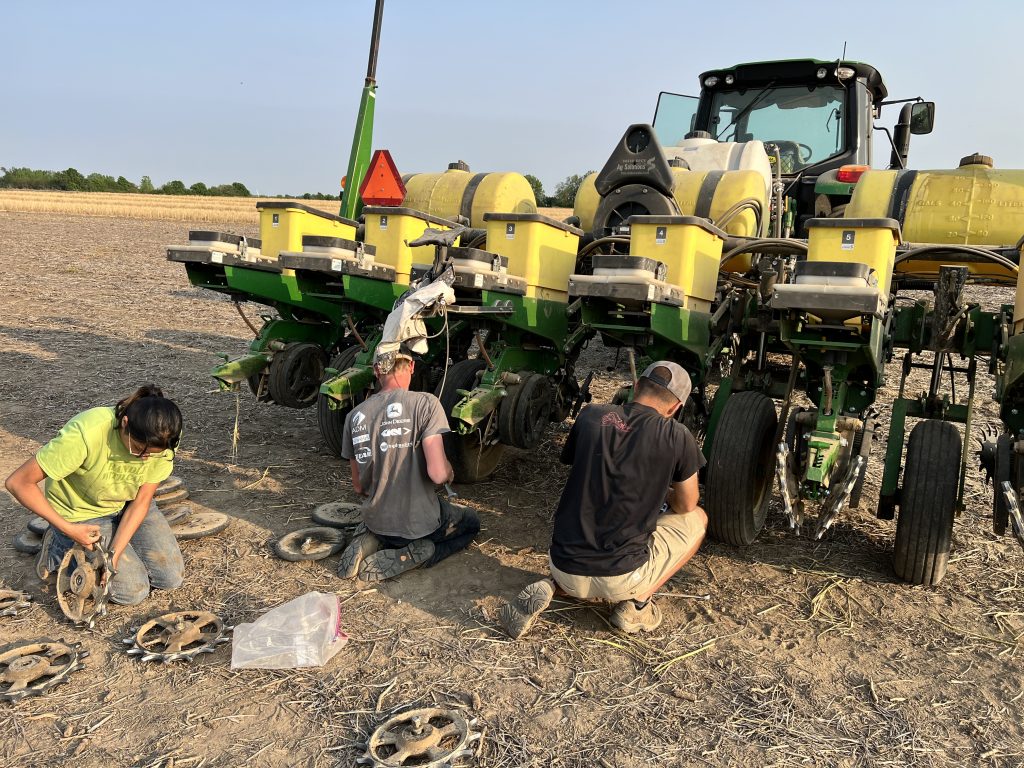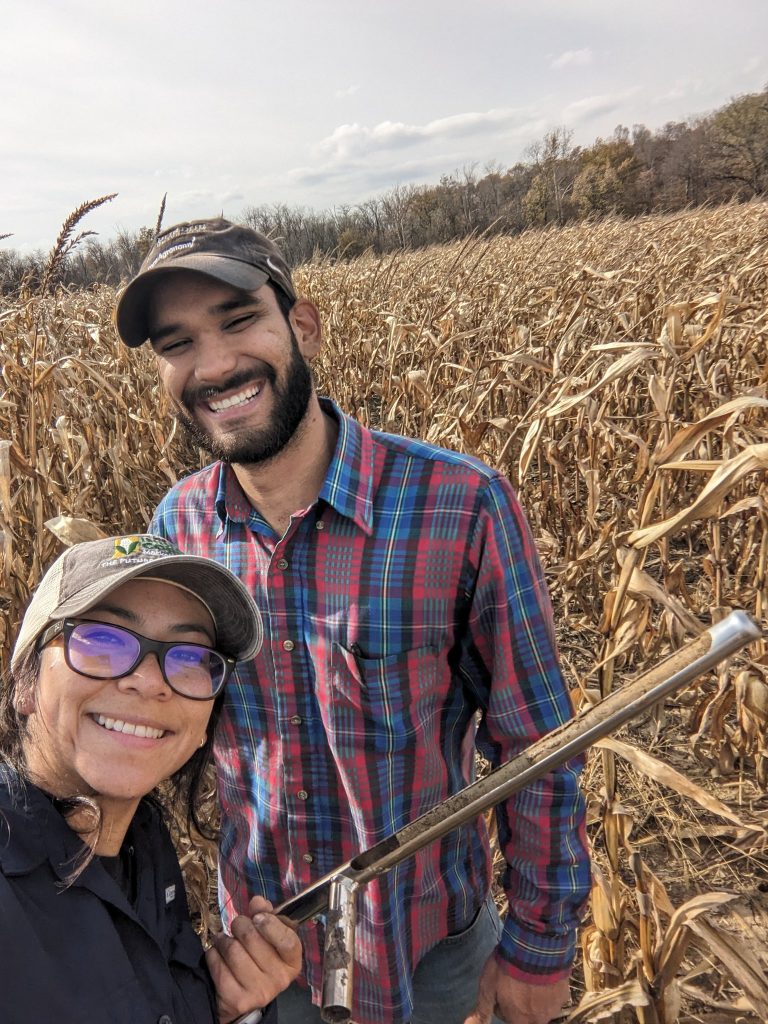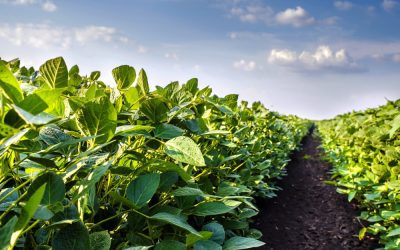Farmer-focused research at Purdue benefits corn growers across the state
By Amie Simpson
Valuable and unbiased research is underway at Purdue University to provide Indiana corn farmers with the information needed to make timely decisions throughout the growing season.
Dan Quinn is the assistant professor of agronomy and extension corn specialist at Purdue. He says there are more than 40 research trials taking place on farmer’s fields and Purdue Agricultural Centers across the state as well as the Agronomy Center for Research and Education (ACRE) in West Lafayette.
“We try to help farmers make decisions and answer questions,” Quinn said. “A lot of our applied research directly influences farmers. As soon as the results come off the combine, for example, we’re able to talk about them. The research shared through Purdue Extension could potentially direct a farmer’s decision one way or another during the next growing season.”
Most of the trials are tailored toward topics that farmers have requested.
“A lot of our research trials are built off the questions I get at field days and phone calls and emails from farmers asking us to focus on specific topics,” he said. “That is what drives a lot of our research projects.”
Research trials spanning all aspects

Quinn said there is a lot of research related to farm equipment. A few of the trials involve evaluating planter components and technologies. “We’re looking into how different planters work, where they work, and in what conditions they work,” he said. “We’re also looking at how they perform in no-till and cover crops compared to conventional tillage.”
A few farmers in the state utilized different variable rate seeding prescriptions during corn planting and performance results will be compared after harvest.
Another trial focused on the performance of combine headers at harvest. Quinn was recently at a southern Indiana plot monitoring how various combine settings performed in a field with the goal of seeing how they influence kernel losses.
Quinn said a common research topic requested by farmers is product evaluation as farmers want to know how fungicides, fertilizers and biologicals perform.
An Indiana Corn Marketing Council-supported trial in 2024 will involve looking into corn yield, nitrogen use, and biological activity responses to nitrogen-supplier microbial amendments.

“We’ll be working with our soil microbiologists to really understand these different products and where they work or don’t work,” he said. “It was unbelievable how many farmers have asked me about this. We’ll investigate how the products perform from a yield, plant health and efficiency standpoint.”
This trial and others overlap into research focused on sustainability – including cover crops, tillage and nitrogen-management. Overall, research through the Purdue Extension Corn Program aims to provide solutions to help farmers be more efficient and improve production, profitability and environmental performance of corn systems.
“Farmers know how to grow corn. They know how to grow corn well and they do an outstanding job. But how do we get better,” Quinn said. “That’s where I come in and try to understand that next step. How do we get better, not just from a yield standpoint, but how do we get more efficient and how do we produce more with less. That’s really important from what we work on here at Purdue.”
Putting research into practice
Purdue Extension is uniquely positioned to conduct diverse research trials across the state and share the results with farmers. Quinn said he participates in between 60-70 meetings each year to provide this information.
“That’s why Purdue Extension is here — to share that information and expertise. Why do all of this work if we can’t share what we’re able to see from it and help farmers? One of my favorite parts of my job is to be able to do all this work, see the results that come in, share it with farmers in the state, and implement it on their farm the following year,” he said.
“Through the extension, we’re able to reach a lot of farmers around the state. The research drives what we do and we’re able to present a lot of things farmers want to see because we do intensive trials based on their questions and challenges.”
Results and other resources are posted on Quinn’s website at thekernel.info.
For the second year in a row, a book of trial results will be published for farmers based on data that is received this fall. There will be some print copies available as well as a digital copy on the website’s homepage.
Farmers interested in working with the Purdue Extension Corn Program team on potential research trials can reach out to Quinn at djquinn@purdue.edu or 765-494-5314.
Posted: November 24, 2023
Category: ICMC, Indiana Corn and Soybean Post - Winter 2023, News, Sustainability




